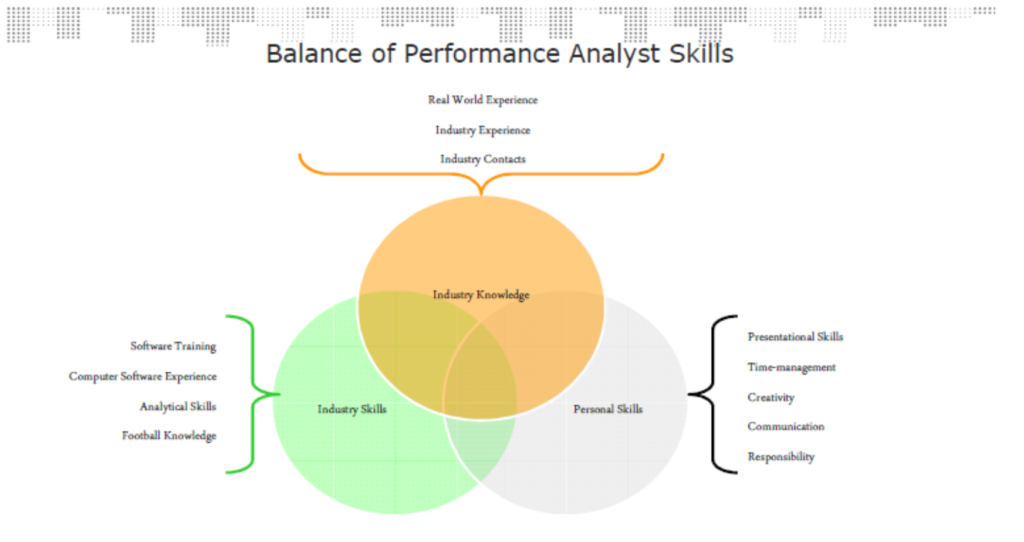This is a guest post by Will Jones, Prozone’s Head of Performance Analysis. Will is both an employee of the industry but also an employer, both internally for Prozone analysts, internships, placements & work experience students, but also for the clubs whom often ask Will to send on CVs, provide shortlists of students/potential analysts that he knows of and would recommend This gives Will a very good indication of what others are looking for in a Performance Analyst.
By Will Jones
It is common knowledge that performance analysis is a highly competitive environment in which to forge a career. The standard of analysis within professional football clubs has increased over the years as the role has developed. Similarly, the number of students graduating with sports degrees and individuals looking to work in the industry continues to grow, a trend which has seen the job market become somewhat saturated of late.
What is apparent, however, is that there are more diverse opportunities available as the role of the analyst and associated work becomes more valued and varied in its approach. For a professional club it is now the norm to have analysts at first team level specialising in pre and post-match analysis, player recruitment and player development within the younger age groups. In recent weeks there has even been an advert at a Premier League club for a Visual Designer to work within the performance analysis team.
Following on from Rob’s ‘How to Get a Job’ where he documents three key strands to establish yourself as a key candidate for a job, I believe that it is key for individuals to have resources and insight from those involved in the industry. This is something that we value on the analysis courses that are run by Prozone. As well as giving future analysts the opportunity to gain experience and practice on the Prozone products, it is key that there is time to network with other attendees and opportunities to speak with Prozone staff. As part of the courses we run a Q&A session and look to provide an insight into the key skills required by analysts looking for a job.
Below I have listed what I believe to be three of the key skills that are required by those hoping to secure work as an analyst:
Sporting Knowledge/Analytical Skills
 You must show that you are more than just a casual fan. You need to have the ability to work with big data, to find trends, pick out key points and tell the story not just of what is happening, but why. These skills can be demonstrated through coaching experience or qualifications, blogs and websites where you are producing articles, or through volunteering or working at a club.
You must show that you are more than just a casual fan. You need to have the ability to work with big data, to find trends, pick out key points and tell the story not just of what is happening, but why. These skills can be demonstrated through coaching experience or qualifications, blogs and websites where you are producing articles, or through volunteering or working at a club.
Sometimes it can be difficult to show you have the appropriate level of analytical ability. You won’t be more experienced than the coaching staff you are working with, and they don’t expect you to be, but you must prove that you can relate analysis to footballing performance in order to deliver insight.
Technological Competence
 With the way the industry has developed, a good level of technical expertise is crucial. I am by no means an expert with technology myself, but I have an ability with the products I am required to use and have confidence that I could pick up and learn other bits of software and could try to resolve any issues. This competence is built through experience using products and receiving good training, using video cameras, mobile phones, tagging templates, iPads and other devices.
With the way the industry has developed, a good level of technical expertise is crucial. I am by no means an expert with technology myself, but I have an ability with the products I am required to use and have confidence that I could pick up and learn other bits of software and could try to resolve any issues. This competence is built through experience using products and receiving good training, using video cameras, mobile phones, tagging templates, iPads and other devices.
Sometimes people overlook the basics. We all own a laptop, and while we might not have access to Prozone we can take the time to feel comfortable with a range of different operating systems. You don’t need to be an expert in everything, but it’s important to have an appreciation for things and show you are able to learn quickly when you get the chance to use new software.
Personal Skills
 For me, this is an area that is often overlooked, yet one that we can all work on very easily. In any job you need the basic communication, organisation, IT and time-management skills, however I believe that this is magnified in the analysis world. There is nothing that can really prepare you for the football club environment, working with players with egos, demanding managers and pressure seven days a week, but everyone can work to improve their communication skills.
For me, this is an area that is often overlooked, yet one that we can all work on very easily. In any job you need the basic communication, organisation, IT and time-management skills, however I believe that this is magnified in the analysis world. There is nothing that can really prepare you for the football club environment, working with players with egos, demanding managers and pressure seven days a week, but everyone can work to improve their communication skills.
We can always test and review our ability to communicate with others, whether presenting at university, holding a meeting, providing customer service or writing an email/cover letter. With any educational or part-time work you can improve your skills base and it’s important to remember that and keep developing.
I see a lot of people who have good experience and good product knowledge, but let themselves down in interviews or meetings with poor communication. When interviewing and recruiting, I often find that the candidates are very similar on paper, so it often comes down to an instinct that is formulated largely on the way someone communicates and conducts themselves.
We can’t all be perfect (I’m certainly not!) and become experts on software that we have limited access to, but everyone can take the time to develop their softer skills and be proactive in terms of gaining experience.
***
Quality not Quantity
Regarding industry experience, it is quality and not quantity that really counts. Don’t just turn up every day for a year filming training and expect to be employed at the end of it. Aspiring analysts must make the most of their opportunities and experience as many different scenarios as possible. I fully respect those who gain experience at the lower levels, as they will often have a more hands-on experience and get to implement ideas and work more closely with the coaching staff.
Independently there are good opportunities and resources to begin to learn more and develop skills. There are more resources available than ever through the use of Youtube to follow conferences and presentations, as well as the likes of Twitter and online blogs that enable greater access to relevant articles. These platforms also give people the opportunity to get more of an insight into the industry than was previously the case.
While these are only opinions from my specific position in the industry, hopefully they can be of some use to those looking to secure a future in analysis. I’ve been employed at both club and business level within analysis for five years, as well as being an employer of analysts. I regularly view CVs and enquiries from those seeking work and could go on to write more about the process of applying for roles, but I hope that this brief post has been useful and will motivate you as you continue to learn and develop your analytical skills.
*You can find Will on Twitter: @WMJ87












